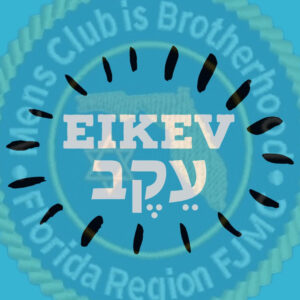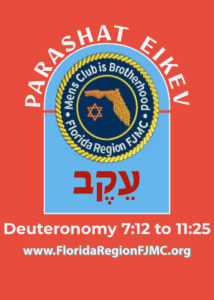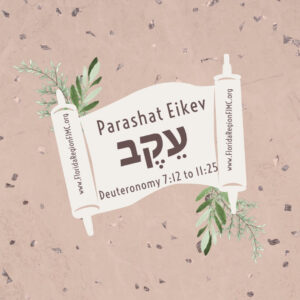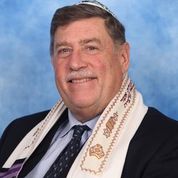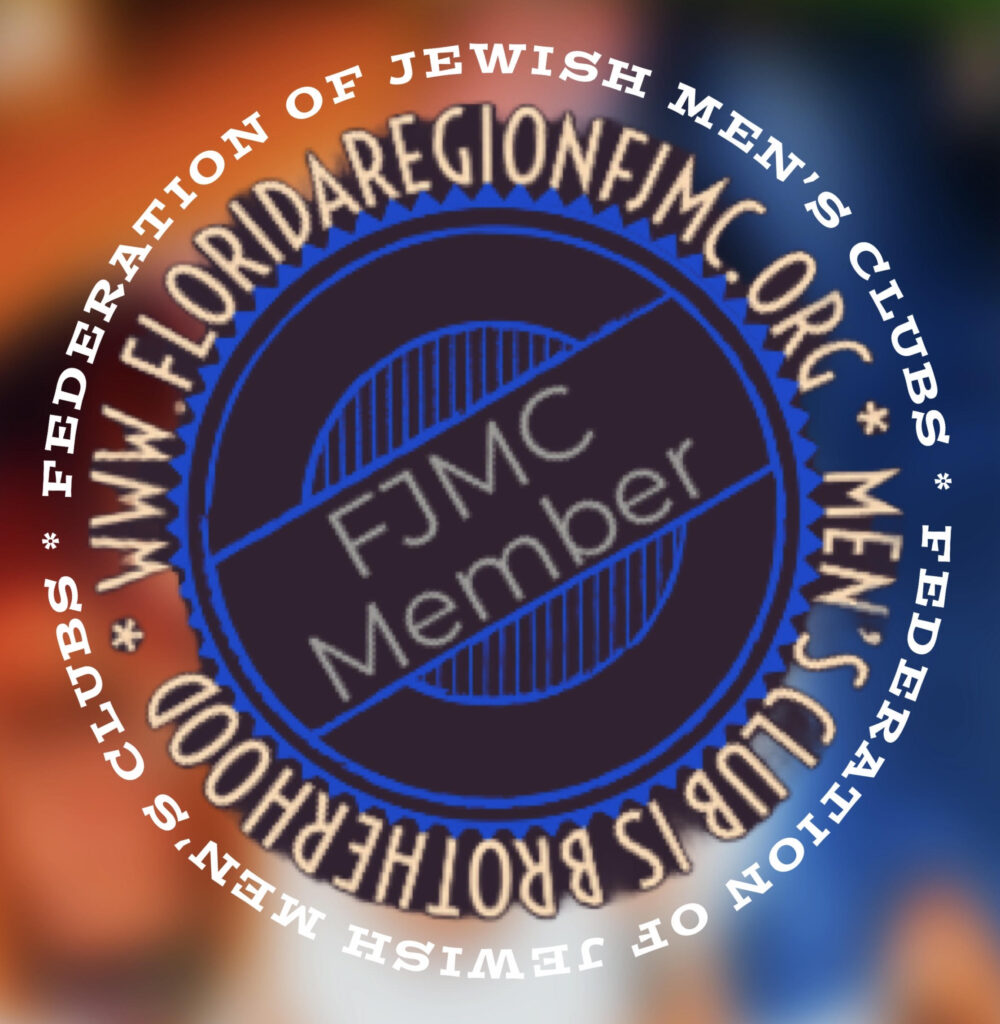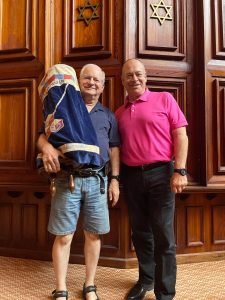
When you Choose Shabbat, you choose to learn that every Shabbat is different and special. This week I learned about Parashat Eikev (עֵקֶב), the 46th weekly Torah portion in the annual cycle of Torah readings.
According to Wikipedia, Eikev (עֵקֶב), Deuteronomy 7:12 through 11:25, contains 6,865 Hebrew letters, 1,747 words, 111 verses and makes up 232 lines of the Torah scroll. Eikev reminds us of the many blessings of obedience to G-d as well as the dangers of forgetting G-d. Eikev also recounts the making and re-making of the Tablets of Stone, the incident of the Golden Calf, Aaron’s death and the duties of a Levite.
Rabbi Michael D Klein of Temple Torat Emet offers his insights on this week’s Torah reading, Eikev for Shabbat, August 24, 2024 aka 20 Av 5784:
“The word “eikev “has many meanings and several connotations. Rashi comments that eikev has the same root as the Hebrew word for the heel of the foot which suggests that the meaning of the opening verse is a warning not to tread upon minor mitzvot but to treat each mitzvah as special. How is it possible to classify mitzvot as major or minor? Yes, if we view them as just rituals we forget that each mitzvah is part of an integrated and coordinated system of relationships similar to human society. In a functioning society, every person is viewed as important and each person contributes their unique abilities for the good of others.
Another Rabbinic interpretation of the word eikev is, “consequence.” Since the heel naturally follows the direction of the foot, we are promised by G-d that the consequences of directing one’s heel toward doing mitzvot is the reward given to us by Hashem which extends to others and encourages everyone to do likewise.
Among the mitzvot included in this Sedra is the commandment to the love the “ger” -righteous convert. Unlike many other religions, we not actively seek to convert people to Judaism, yet, the Torah reiterated this mitzvah 36 times. Why? Human instinct is to denigrate those who are different from us. The Torah relates over and over how we were mistreated by the Egyptians and forced into slavery. Rashi comments, “consider how painful it is to be persecuted” . To be an outsider is to be degraded and humiliated. Therefore, we are to treat the righteous convert with special esteem which not only elevates them but also us because we can overcome our natural instinct of prejudice!
The fabric of Jewish society requires special sensitivity to the needs and feeling of others. This is why all mitzvot, regardless of how insignificant they might seem, are never relegated to habit or triviality and our feet and our heels should lead us to making every person feel special with our every word and deed.”
Questions to consider:
- Why does the Torah connect “Banim Atem- You Are Children” with the prohibition against damaging the body as a sign of mourning?
- What is the punishment prescribed for someone who leads us to idolatry? Why is it more severe for Jews who do this?
- What reference is included in this Sedra to Birchat Hamazon?
- What important ideas are included Verse 8:3 referring to the necessities of life?
Rabbi Michael D. Klein attended Yeshiva College of South Florida and served as Torah Reader, Hebrew teacher, Chazzan and spiritual leader of various synagogues throughout South Florida. In January 2015 he became Ritual Director, Bnai/Bnot Mitzvah instructor and 7th grade Hebrew instructor for Temple Torat Emet of Boynton Beach. In October 2019 he was accepted into an accelerated track and received his shicha from Yeshiva Adath Wolkowisk and has been the Rabbinic leadership of Temple Torat Emet since August 2020. In September of 2022 he was appointed Rabbinic and Spiritual Advisor of the Florida Region of FJMC.
Choose Shabbat; choose to celebrate, to light candles, sing songs and learn a little Torah.
This moment of Jewish Learning is brought to you by the Florida Region of the Federation of Jewish Men’s Clubs (FJMC). We are part of a confederation of over 200 Jewish Men’s Clubs and Brotherhoods representing over 20,000 members across the United States, Canada, Latin America, and beyond. Learn more about how your Jewish Men’s Club or Brotherhood can affiliate with the FJMC at: https://fjmc.org/for-clubs/affiliating-with-the-fjmc/.
The Florida Region of FJMC serves the needs of affiliated Men’s Clubs and Brotherhoods throughout the State of Florida. Get to know more about the FJMC Florida Region and our growing network of Jewish Men’s Clubs and Brotherhoods at www.floridaregionfjmc.org and please visit and LIKE our Florida Region FJMC Facebook Group at www.facebook.com/FloridaRegionFJMC.

